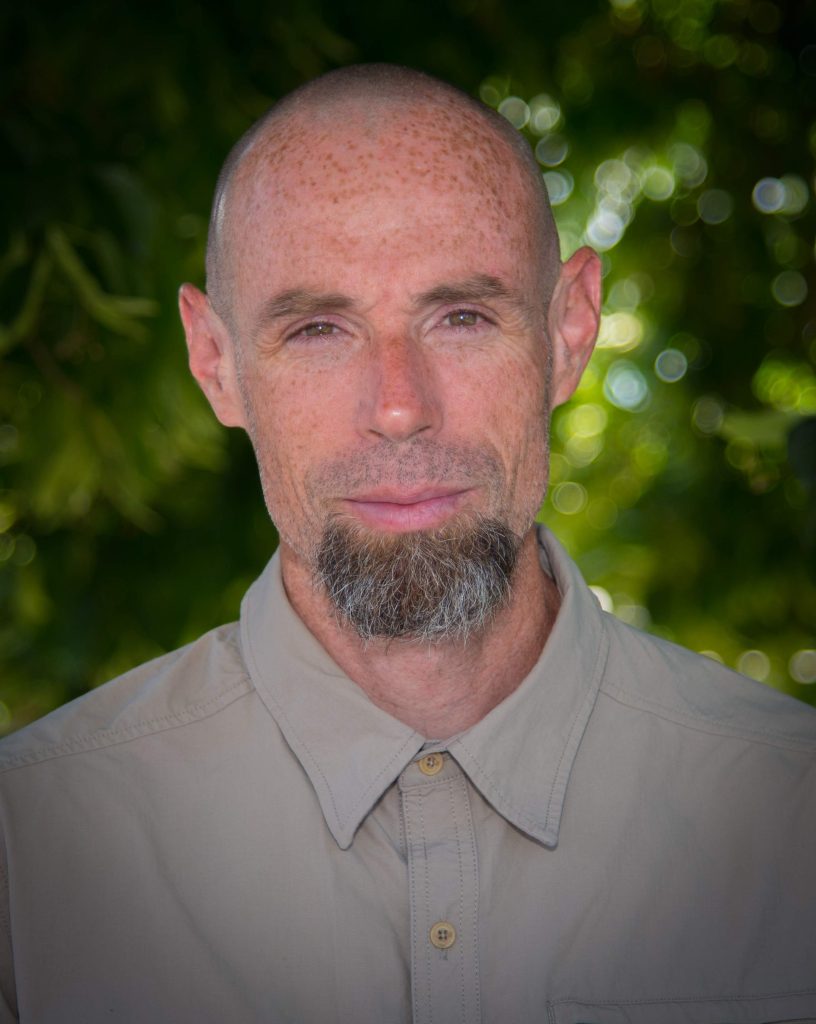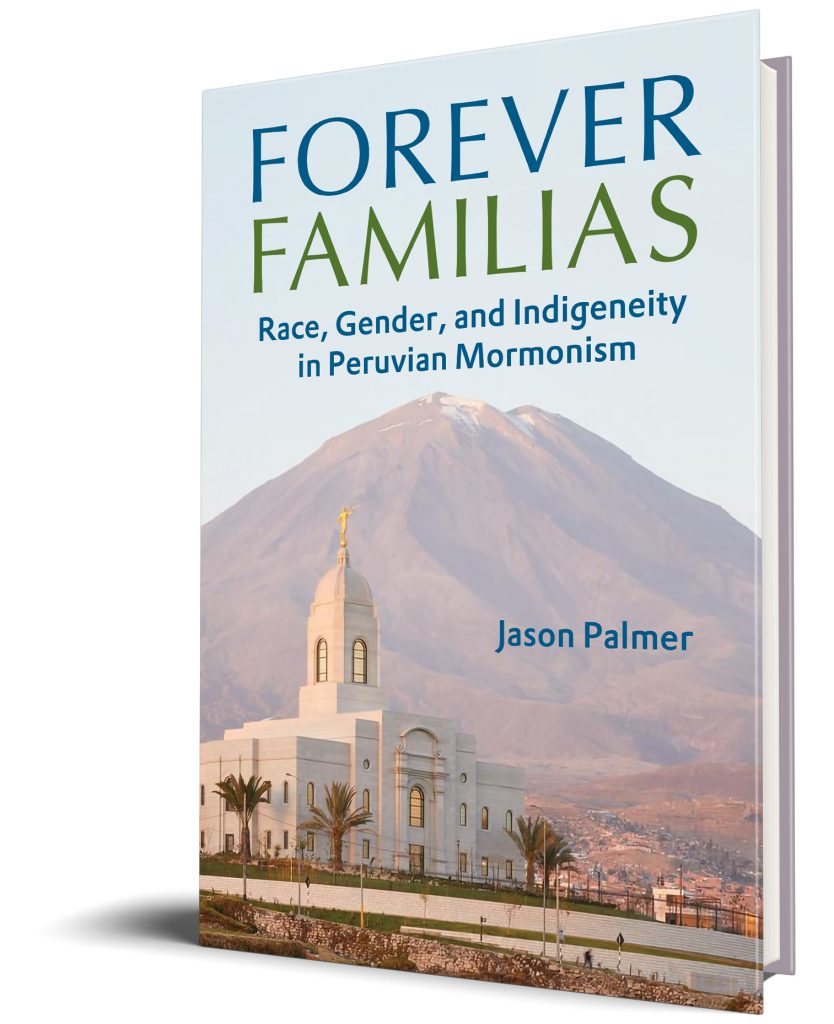Jason Palmer, the author of Forever Familias: Race, Gender, and Indigeneity in Peruvian Mormonism, answers questions on his new book.
Q: Why did you decide to write this book?
My friends and family in Peru and Utah confided in me their stories and philosophies regarding Mormonism’s interaction with race, gender, kinship, and other forms of coloniality under the assumption that I would try to publish them. They expected nothing less than a book to emerge from this 10-year project in which they invested so much of themselves. They wanted readers everywhere, especially in the hierarchy of The Church of Jesus Christ of Latter-day Saints, to begin to see Peruvians as, at the very least, capable of self-government. Most of all, they wanted their non-nuclear kin entities to begin to count as what their church’s marketing department called, “forever families.”
I also wanted to write this book because, when I began this project, there were only a handful of anthropological ethnographies about Mormonism in existence. To this day, I can only find 3: one that was self-published (The Book of Mammon), one that only deals with Mormonism in a few chapters (Buddha is Hiding), and one that is largely about a non-LDS form of Mormonism (Desert Patriarchy). Meanwhile, there was a dozen sociological ethnographies about Mormonism and hundreds, if not thousands of histories. As an anthropologist, I wanted to fill a void: there were no ethnographies (anthropological or otherwise) about Peruvian Mormonism.
Q: What is the most interesting discovery you made while researching and writing your book?
Many Peruvians who participated in my study interpreted Mormonism’s truth claims to mean that Peru was even more “Mormon” than Utah. Peruvian Mormons often combined that spatial realization with their longstanding understanding of kinship as a relatedness untethered to biology. The resulting ontology allowed them to be even more “Mormon” than me, a 5th generation biological descendant of the storied Anglo Mormon pioneers.
Q: What myths do you hope your book will dispel or what do you hope your book will help readers unlearn?
I hope my book will help US readers loosen their emotional attachment to the United States. I hope to dispel any remaining doubt in people’s minds regarding whether or not the United States, including its religious arm, is a force for good in the world. It is not. The United States and, therefore, The Church of Jesus Christ of Latter-day Saints, is a force of destruction and colonization. However, I would also like to dispel the racist mythology that assumes that the victims of US-caused devastation are incapable of manipulating tools of destruction into tools of liberation. Peruvian Mormonism is the perfect example of a radically internationalist tradition currently taking shape in formerly colonized nations that is actively converting spiritual oppression into material revolution.
Q: Which part of the publishing process did you find the most interesting?
Resistance from active LDS peer reviewers became an interesting case in point for some of the arguments that I made in the book. One argument that these peer reviewers’ denominational loyalty supported was my claim that the LDS church sought to be a hegemonic force in all aspects of its parishioners’ lives. It turned out that the church’s reach extended even to the supposedly impartial halls of the academy. Anthropologists expert on religion, Peru, migration, indigeneity, and kinship all signed off on the project after I incorporated their invaluable revisions. Experts on Mormonism, on the other hand, though they found most aspects of the manuscript intellectually and even spiritually compelling, refused to recommend publication even after I incorporated their revisions. I will leave the reader to speculate as to why.
Q: What is your advice to scholars/authors who want to take on a similar project?
I advise scholars who are Anglo Mormons to focus their studies on Anglo Mormons. Misguided professors, rightly worried about my marketability within academia, encouraged me to focus on Peruvian Mormons because they considered Anglo Mormons to be unfit anthropological subjects within the culture of US anthropology departments. They were not “other” enough. They were not exotic enough. I advise scholars to uncover the white supremacy behind those considerations. Such considerations are made because even anthropologists cannot yet quite conceive of White people as being just as “exotic” as anyone.
One exotic trend among Anglo Mormons that I find fascinating is the phenomenon of ex-Mormonism. Someone needs to infiltrate that realm to help us understand how white supremacy remains and is perhaps even strengthened within Anglos once they leave their famously racist church, even within Anglos who leave precisely because of Mormonism’s foundational racism. An exciting entry into the world of ex-Mormonism might be the THRIVE events put on by the THRIVE Foundation of the Mormon Stories podcast. These conferences propose to help people navigate post-Mormonism. I have never attended one, but I think they would be overflowing with rich contradictions waiting to be unpacked regarding race, gender, settler coloniality, and spirituality.
Q: What do you like to read/watch/or listen to for fun?
Though I try to read other genres to expand my horizons, I actually read ethnographies for fun. I am currently reading The Spirit Catches You and You Fall Down by Anne Fadiman because, I’m embarrassed to say, I call myself an anthropologist, but I’ve never read it before. I’m also reading it because many of my 7th graders this year are Hmong (7th grade is about as much academia as I can stand). However, if you really want me to geek out, get me started on ethnographic fiction. My favorite books in that genre are Waterlily by Ella Deloria, Chronicle of the Seven Sorrows by Patrick Chamoiseau, Their Eyes Were Watching God by Zora Nealle Hurston, and both volumes of Todas las Sangres by Jose Maria Arguedas. For even more fun, I like to play at writing ethnographic fiction myself. I avidly listen to the Black Myths Podcast, the Red Nation Podcast, and the Teaching Hard History Podcast. I truly enjoyed the movie Don’t Look Up and the series Reservation Dogs. My favorite movie of all time is Napoleon Dynamite.

Jason Palmer is an independent scholar.

